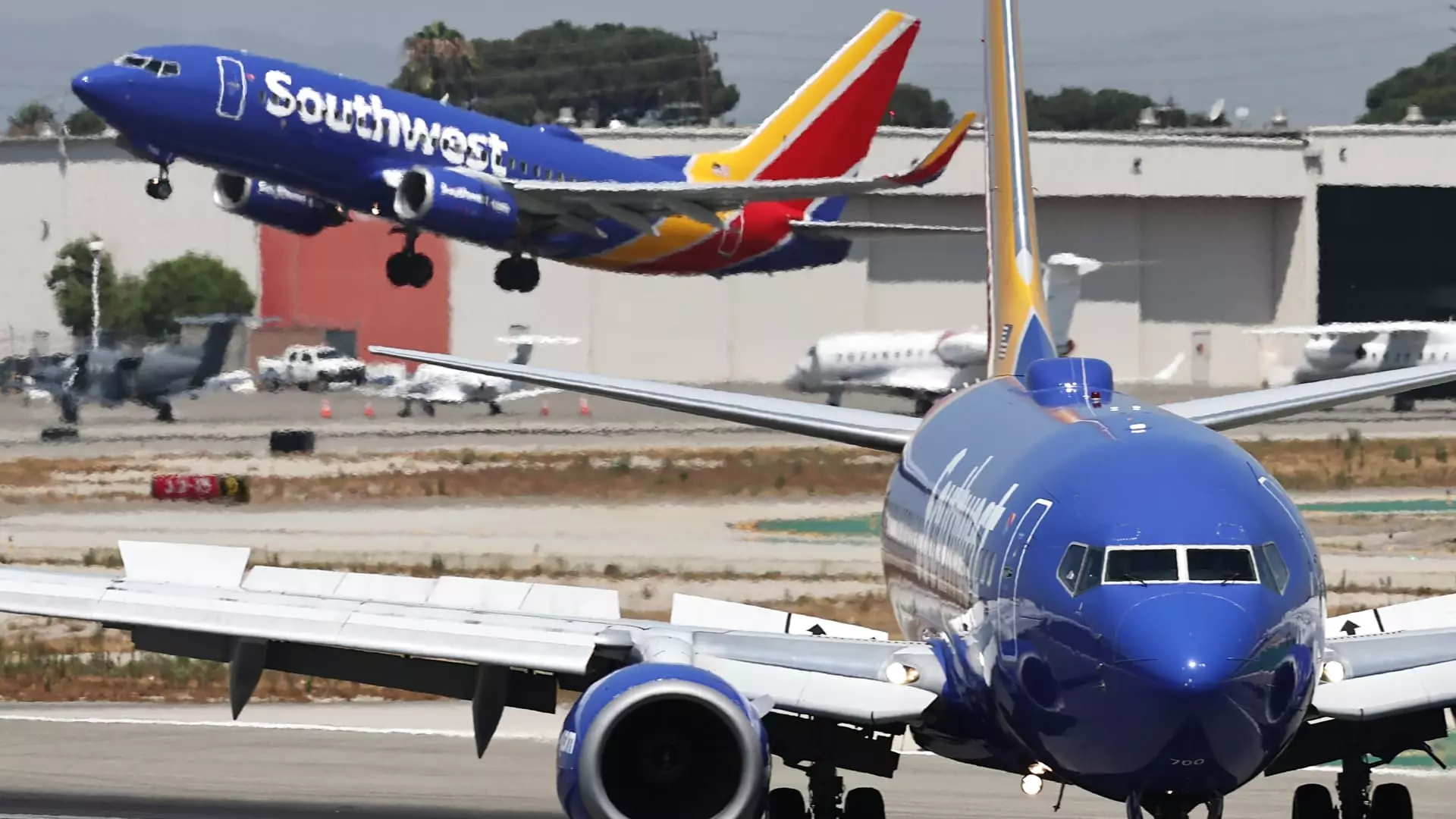In a significant turn of events, Southwest Airlines has revised its third-quarter revenue expectations upward, dispelling previous concerns about declines. This revision comes amid intense scrutiny and pressure from activist investors, particularly Elliott Investment Management. The airline is now predicting a unit revenue increase of up to 3% compared to the same quarter last year, a stark improvement from an initial forecast that suggested a potential decrease of 2%. This optimistic outlook is partially attributed to the rebooking of passengers who were displaced by a systems outage experienced by multiple airlines in July, including a notable incident involving CrowdStrike.
Such a revision not only reflects the airline’s resilience but also demonstrates its ability to capitalize on opportunities arising from industry disruptions. This strategic maneuver indicates that Southwest is positioning itself to not just recover but thrive, leveraging challenges to turn potential losses into unexpected gains.
In a move to bolster investor confidence, Southwest’s board of directors has authorized a substantial $2.5 billion in share buybacks. This financial strategy is particularly vital in a competitive environment where companies seek to enhance shareholder value while combating activist campaigns. By returning capital to shareholders, Southwest aims to reinforce its commitment to maximizing profits amid shifting market dynamics.
To further solidify its leadership structure, the airline has announced the addition of Bob Fornaro to its board. Fornaro, who brings with him a wealth of experience from previous roles at Spirit Airlines and AirTran, is seen as a strategic asset. His familiarity with the airline’s operational landscape position him to contribute significantly to Southwest’s ongoing evolution and adaptation to market demands. Notably, Fornaro’s long-standing ties with Southwest will likely facilitate a smoother collaborative effort as the airline embarks on its new trajectory.
On the same day the announcements were made, Southwest executives held an investor day presentation at their Dallas headquarters. This event is crucial, particularly as CEO Bob Jordan and his team face mounting pressure to reassure investors of a turning tide in growth and profitability. The airline’s leadership is tasked with effectively communicating Southwest’s future vision, especially given Elliott’s call for a potential leadership shakeup.
During this presentation, executives outlined transformative changes aimed at modernizing the airline’s long-standing business model. High on the agenda are the introduction of assigned seating and extra-legroom options—innovations designed to attract a broader consumer base and generate additional revenue streams. While these new features will not roll out until 2026 due to regulatory processes, they signal a clear departure from traditional practices and an embrace of strategies more in line with contemporary consumer expectations.
Challenges Ahead and Innovative Solutions
However, Southwest’s path to transformation is layered with challenges, particularly the shortage of new aircraft stemming from Boeing’s delays. The anticipated introduction of the 737 Max 7 has yet to be realized due to certification holdups. This shortage has forced the airline to make difficult operational decisions, including the suspension of unprofitable routes that could benefit from smaller aircraft to meet demand.
Another strategic cut involves a significant reduction in services in Atlanta for the coming year, indicating a proactive approach to streamlining operations amid tightened resources. Such measures, while painful, demonstrate a commitment to fiscal responsibility and long-term viability.
Moreover, Southwest remains steadfast in its core customer-centric policy of allowing two checked bags free of charge. This decision, defended by executives, highlights the airline’s aim to differentiate from competitors and sustain market share—an essential strategy in a landscape increasingly influenced by cost-cutting measures and fee structures.
Southwest Airlines stands at a pivotal juncture, balancing the demands of activist stakeholders with a commitment to enhancing operational efficiency and customer satisfaction. The airline’s updated forecasts and strategic board enhancements underscore a thoughtful response to both current challenges and future opportunities. As it navigates this complex market, Southwest’s adaptability and innovative spirit will be crucial in shaping its trajectory, ensuring it remains a frontrunner in the airline industry for years to come.

Leave a Reply